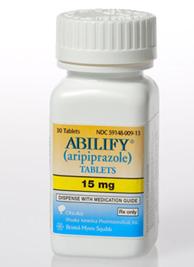 Otsuka has already sued the FDA to block generic versions of the blockbuster antipsychotic Abilify, claiming that its orphan drug exclusivity on one indication should preclude copycat meds entirely.
Otsuka has already sued the FDA to block generic versions of the blockbuster antipsychotic Abilify, claiming that its orphan drug exclusivity on one indication should preclude copycat meds entirely.
But with those copies raring to go, and approvals due next month, the Japanese drugmaker is making one last-ditch effort to persuade the court.
The stakes are high: Otsuka and its partner, Bristol-Myers Squibb ($BMY), collected $5.5 billion in Abilify sales last year. Apparently resigned to the drug's fate, Bristol-Myers factored big Abilify sales losses into its 2015 forecast, with companywide sales expected to hit $15 billion, max.
But Otsuka is still hoping--and fighting. In an amended complaint filed Wednesday in Maryland federal court, the company claims the FDA has been dithering about its Abilify exclusivity claims. In a conference call Monday, agency officials said the FDA hasn't decided whether the orphan drug designation Otsuka won--for a pediatric indication in Tourette's disorder--should bar Abilify generics altogether. Nor has it decided specifically about Otsuka's exclusivity rights, the complaint says.
The FDA plans to issue a decision as soon as Monday, Otsuka claims. Otsuka is pretty sure it won't like that decision--and it's ready to mount an emergency challenge.
An orphan drug designation comes with 7 years of exclusivity rights, but with generics on the market, that exclusivity won't be worth much, Otsuka rightfully points out. Otsuka may be the only one able to market Abilify for that use. But thanks to rules requiring generic drug labels to duplicate the brand-name versions, the Tourette's approval will be right there in black-and-white, for everyone, Otsuka claims.
The FDA has been facing drugmakers' ire in similar cases, where generic companies win approval for their copies, even when a branded drugmaker still holds a patent covering a drug's use in a particular ailment. The "carve-out" approvals mean generic competition earlier than some companies expected.
Hospira ($HSP), for instance, now faces generic versions of its Precedex drug, with the copies approved in one of the drug's two indications. The company tried--and ultimately failed--to fight that approval in court. Takeda Pharmaceutical was hit with an FDA approval to Hikma Pharmaceuticals' Mitigare, a head-to-head competitor to its own gout drug Colcrys, despite the latter's orphan exclusivity in familial Mediterranean fever.
The precedent set by the latter doesn't offer much reason for optimism at Otsuka. We should soon find out what the court thinks; the drugmaker asked for expedited approval of a preliminary injunction against Abilify generics.
- see the amended complaint (PDF)
Special Report: Top 10 patent losses of 2015 - Abilify